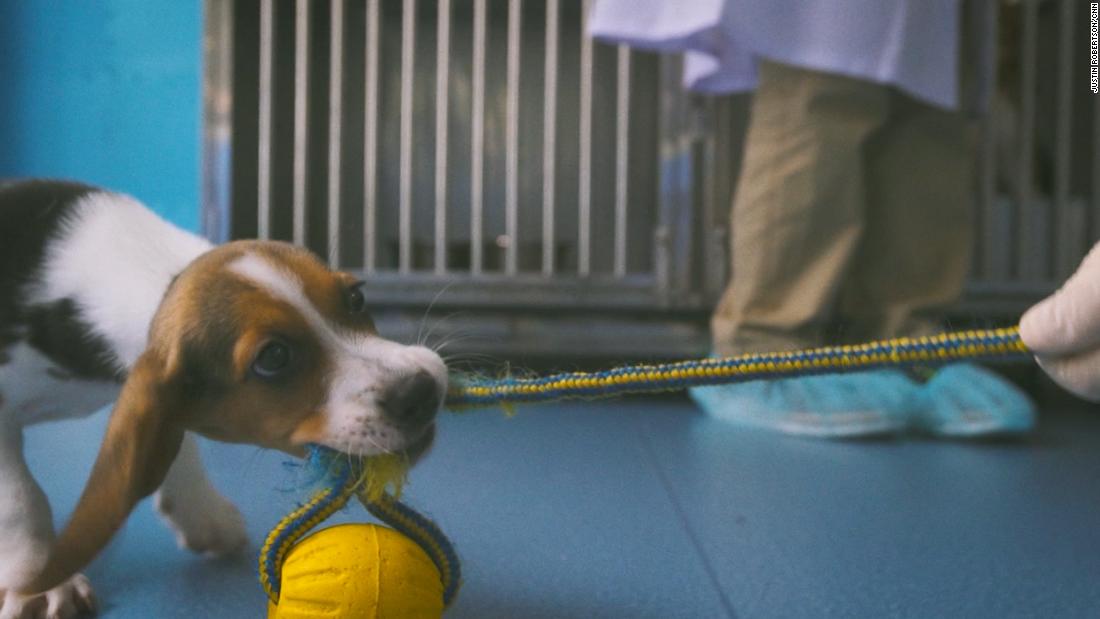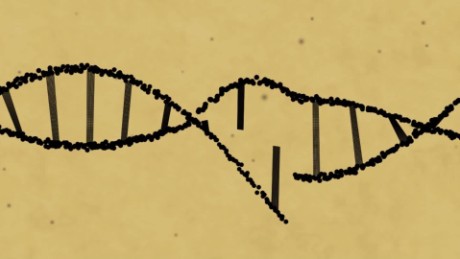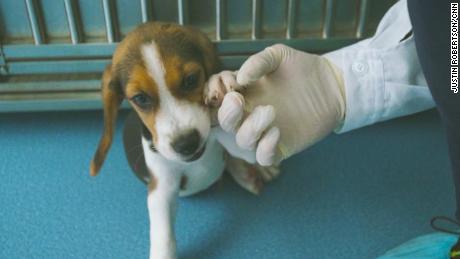Chinese firm clones gene-edited dog in bid to treat cardiovascular disease
Beijing (CNN)With his black, brown and white fur, Longlong looks like most beagles. But the puppy has been sick with a blood-clotting disorder since birth — exactly what scientists in China had wanted.
The pup was cloned from Apple, a different dog whose genome was edited to develop the disease atherosclerosis.
With that genetic information now coded in, the disease -- a leading cause of stroke and heart sickness -- was passed along to Longlong, who scientists will use to study the condition and its possible cures.
Longlong's creator, Beijing-based biotech company Sinogene, said Longlong is the world's first dog cloned from a gene-edited donor. With Longlong's birth, the scientists claimed that China had matched South Korea as a leader in canine cloning technology.
South Korean scientists cloned the first dog, an Afghan hound named Snuppy, in 2005.
"A cloned dog born from a gene-edited cell donor is certainly a breakthrough," says Eugene Redmond, director of Neural Transplantation and Repair at the Yale University School of Medicine, who was not involved in the research.
Sinogene have successfully cloned two more puppies in this manner, meaning the company now has four genetically identical puppies -- Apple, Longlong and two new canines, Xixi and Nuonuo.
"Dogs share the most inheritable diseases with human beings, which makes them the best disease models to study," says Feng Chong, technical director at Sinogene.

Longlong, along with other two puppies were cloned from Apple whose genome was edited to develop atherosclerosis.
According to Feng, Longlong's birth was the first time scientists had combined two cutting-edge bio-technologies: A gene-editing tool called CRISPR with somatic cell cloning technology - the method used to clone Dolly the sheep.
Atherosclerosis, in which fatty material builds up and thickens artery walls, can cause heart attacks and strokes, and affects more than 15.8 million Americans alone. Cardiovascular diseases are the number one cause of death globally, killing 17.7 million people in 2015, according to the WHO.
To date, researchers say the dogs haven't shown any symptoms of the disorder but they are closely monitoring their health, said Mi Jidong, General Manager of Sinogene. Drugs to treat cardiovascular diseases are already being tested on the healthy animals, he added.

What is CRISPR Cas9 gene editing?
Debating the ethics
While other countries are involved in similar research, China has been at the forefront of genetically customized animals, with scientists engineering monkeys to have a human autism gene, extra-strong dogs and pigs without retroviruses.
But as with other cloning and gene-changing experiments, Sinogene's success has been met with ethical concerns.
People for the Ethical Treatment of Animals (PETA) released a statement calling Sinogene's research "unethical."
News Courtesy: www.cnn.com











